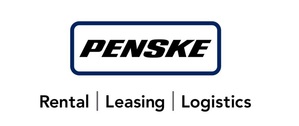CSCMP State of Logistics Report Finds Supply Chains Resetting but Still Strained
-- U.S. business logistics costs (USBLC) dropped 4% to $1.56 trillion, or 7.4% of 2020's $20.94 trillion gross domestic product (GDP).
-- 2021's K-shaped recovery reflects changed consumer habits.
-- E-commerce grew by 33% to $792 billion, representing 14% of all retail sales.
-- Whipsaw effect continues to impact supply chains as supply and demand seek to rebalance.
-- Outlook improving but challenges remain across all transportation modes.
-- Sustainability efforts increasingly important to supply chain leaders.
LOMBARD, Ill., June 24, 2021 /PRNewswire/ -- The 32nd Annual State of Logistics Report® made its virtual debut today and finds supply chains continuing to reset from the pandemic with resilient logisticians adapting, planning and shifting to meet current and future demands. The report is produced annually for the Council of Supply Chain Management Professionals (CSCMP) by global consulting firm Kearney and presented by Penske Logistics.
This year's State of Logistics Report is titled: "Change of Plans" and it delivers a snapshot of the American economy through the lens of the logistics sector in the overall supply chain. The report is a rigorous compilation of leading logistics intelligence from around the world and shines a spotlight on industry trends, and key insights on ever-evolving industry supply chains.
A key metric the report measures is U.S. business logistics costs. (USBLC). In 2020, USBLC dropped 4% to $1.56 trillion, or 7.4% of 2020's $20.94 trillion gross domestic product (GDP). The pandemic forced many global supply chains to screech to a halt and then start back up. Again and again.
As a result of a still ongoing pandemic and other disruptions, supply chains will be forced to continuously adapt. Change is inevitable in supply chains and adjustments are ongoing as manufacturers shift their sources and consumers shift their spending habits. Change will also come from the trend of multi-shoring and emphasis on optionality at the expense of lean and optimal. Safety stock is back, so more inventory will need to be carried.
Key report findings:
- The K-shaped recovery of 2021 reflects changed consumer habits. Hospitality, restaurants and airlines struggled. Grocery retail, home improvement and e-commerce prospered.
- E-commerce purchases (some of which was picked up in-store) grew by 33% to $792 billion, representing 14% of all retail sales.
- The control tower concept is taking on an added importance. Resilience is most effective when paired with visibility. Companies need knowledge to make quick decisions, and the control tower serves as an information hub to enable better planning and reacting.
- Sustainability efforts by the transportation sector are increasing. Consumers are considering environmental impacts in their purchasing decisions while governments across the globe are instituting more stringent regulations.
- Moving forward, supply chains must continue to provide goods and services to the American public while dealing with tight capacity and volatile rising rates; H1 2021 has the highest rates the market has ever seen.
- The U.S. economy is now expected to grow 7.7% this year with advancements related to increased vaccinations and a return to normal.
Mark Baxa, president and chief executive officer of CSCMP: "This highly anticipated report contains the data and insights that will help our members achieve successful results for their organizations and prepare them for the business demands ahead. Supply chain management professionals continue to lead efforts in adapting, innovating, and managing through this period of unprecedented disruption."
Michael Zimmerman, partner at Kearney: "Logisticians came off the ropes of a bruising 2020 with a new appreciation that while resilience from the capabilities they had built got them through the main disruptive rounds of the pandemic, 2021 is confirming that the ability to change plans and execute under adversity has risen to be the top priority."
Andy Moses, senior vice president of sales and solutions, Penske Logistics: "Resiliency, innovation, technology, and close collaboration with shippers have all been essential to weathering the rapidly changing market demands up and down the supply chain. We see this continuing as supply chains reset and adjust to a new normal as consumer preferences and expectations have reshaped the future of the supply chain during the pandemic."
Since 1963, the Council of Supply Chain Management Professionals (CSCMP) has been the preeminent worldwide professional association dedicated to the advancement and dissemination of research and knowledge on the supply chain management. With CSCMP members located around the world representing nearly all industry sectors, government, and academia, CSCMP member receive unparalleled networking opportunities, cutting-edge research, and online and on-site professional educational opportunities. To learn more, visit cscmp.org or follow CSCMP on social media: Twitter, Facebook, LinkedIn and YouTube.
As a global consulting partnership in more than 40 countries, our people make us who we are. We're individuals who take as much joy from those we work with as the work itself. Driven to be the difference between a big idea and making it happen, we help our clients break through. To learn more about Kearney, please visit www.kearney.com.
Penske Logistics is a Penske Transportation Solutions company with operations in North America, South America, Europe and Asia. Penske Logistics provides supply chain management and logistics services to leading companies around the world. Penske Logistics delivers value through its design, planning and execution in transportation, warehousing and freight management. Visit www.penskelogistics.com to learn more.
SOURCE Penske Logistics

WANT YOUR COMPANY'S NEWS FEATURED ON PRNEWSWIRE.COM?
Newsrooms &
Influencers
Digital Media
Outlets
Journalists
Opted In




Share this article